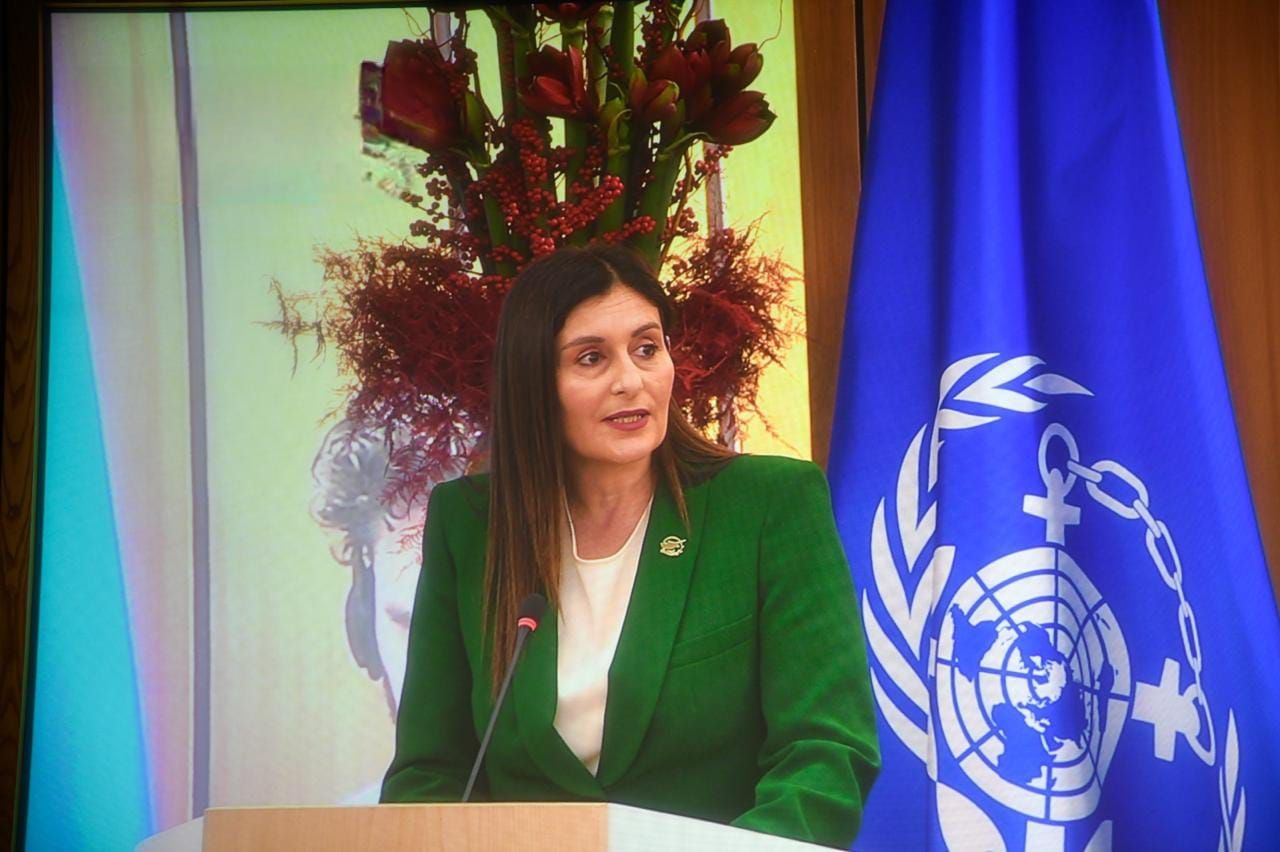Cyprus and Greece presented a united front at the International Maritime Organisation’s (IMO) 34th General Assembly in London, as both countries set out their vision for a stable, fair and globally aligned maritime framework, one that balances environmental ambition with economic reality.
Addressing the plenary on behalf of Cyprus, Shipping Deputy Minister Marina Hadjimanolis spoke of cooperation, resilience and progress, noting that the IMO’s ability to remain “agile, credible, and capable of safeguarding both the maritime sector and the oceans for generations to come”depends on strengthening regulation, boosting technical cooperation and embracing innovation.
She said Cyprus “envisions an IMO that is strong, fair, inclusive, forward-looking and financially healthy,” adding that member states are “determined, united and resolute” in this goal.
Greece, meanwhile, used its intervention to reinforce similar priorities while setting out its candidacy for Category A of the IMO Council.
Minister of Shipping and Island Policy Vasilis Kikilias said it was an honour to seek the vote of member states, noting that “Greeks are people of the sea. From Ulysses until today, on the sea we have built our historical heritage, our economy and our future.”
He asked delegates to consider Greece’s role in supporting not only its national interests but also a global framework compatible with all, including recognition of today’s key fuel, LNG, and the need for cooperation to achieve shared goals.
Although speaking on behalf of two different administrations, both ministers converged on the need to avoid a fragmented regulatory landscape.
Kikilias warned that “a mosaic of different regulatory frameworks, can only lead to an extremely difficult environment for international shipping,” stressing that global measures must blend environmental ambition with economic realism and be rooted in justice.
He pointed to the need for caution in the green transition to avoid economic and technological shocks, arguing that “international rules should not constitute a punitive mechanism,” and emphasising the importance of realistic timetables and reward mechanisms.
This dovetailed with Hadjimanolis’ emphasis on resilience and coordinated global solutions, as both interventions portrayed the IMO as the central forum for ensuring stability and fairness in maritime regulation.
Kikilias reminded delegates that “80 to 90 per cent of world trade is carried out by sea,” a fact that underscores the shared responsibility to manage issues such as green energy, environmental protection, competitiveness and cost pressures in a balanced way.
He further stressed that energy prices, inflation and freight costs carry major implications for prosperity worldwide, alongside the need to “bequeath to our children a better planet.”
Closing his remarks, Kikilias condemned “all attacks against merchant ships and seafarers,” calling for collective action against piracy, which he described as “unacceptable” and a serious threat to global trade.






Click here to change your cookie preferences